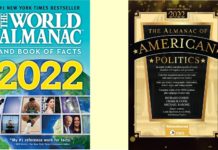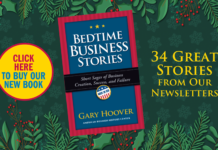|
Forty years ago this weekend, the most famous rock and roll festival in history took place. In honor of the 40th anniversary of Woodstock, CDs, DVDs, and books are pouring forth.
I graduated from high school that spring. At that time I was too far removed (in several dimensions) from Woodstock to attend. But many of my favorite groups performed there, and the release of the documentary film of the concert the following year was a major event.
I think there are at least three reasons to celebrate Woodstock.
First, for someone like me, it was one of the most amazing entrepreneurial adventures of the last 50 years. Four young guys, two of them age 24 and two of them age 25, dreamed up this crazy idea and raised the money to pull it off. No one believed how big they intended it to be, and it turned out to be much bigger than they ever intended.
Roberts, Rosenman, Kornfeld, and Lang confronted all the obstacles common to entrepreneurship: you’re too young, you don’t have the money, you can’t do it in my backyard, you can have some of what you need but not nearly enough, etc etc etc.
They had to change their location, actually away from Woodstock to Bethel. They had a traffic control plan worked out but at the last minute the state police commander opted out – the same fellow who later oversaw the Attica prison fiasco. Farmer Max Yasgur leased them his land but some of his neighbors never forgave him, although it appears all were compensated for any damage.
Some bands would not go onstage without a check in advance. Some, probably to their everlasting regret, refused to give approval to go into the filmed version. And several, listed at Wikipedia (http://en.wikipedia.org/wiki/Woodstock_Festival), thought the festival not worth appearing at. Some of the bands who did appear earned a living off the fame they achieved from the festival and film.
The movie was its own entrepreneurial adventure. Big movie companies at first balked because the prior year’s Monterey Pop movie was not a hit. Director Michael Wadleigh tried to film as much of the three days of music as possible, from several angles. The film supplier did not believe they really needed that much film, so they were short-changed. Helicopters bringing in the bands also brought in more film stock, which was often dashed to the stage just as the multiple cameras ran out of film.
A few days after the event, two of the partners sold out for less than $40,000 each (according to some) the belief that lawsuits would wipe them out. Warner Brothers, with recording and filming interests, “came to the rescue.” Over time the movie was a huge winner.
Second, it goes without saying that the festival included some of the greatest bands of the era, giving top performances. Each fan has their own picks – for me, Sly and the Family Stone, Crosby Stills Nash and Young, and Santana are probably tops. But that would seem to downgrade Joan Baez, the Who, and many others who rocked (or folked) their socks off. Listening to the main album, the second follow-up album, or the extended sets now being released for the first time (“The Woodstock Experience”) are all worthwhile compendia of the best of sixties music.
Third, I think that the film version is one of the all-time great documentaries. You really get a feel for what “hippie” means and for what the sixties meant. Wadleigh and his crew captured the music and the musicians and presented the results as well as any music film I have ever seen.
There are lots of ways to access information about Woodstock, the music, and the movie. My list on the right starts with the newly released Blu-Ray and standard definition DVD versions of the movie, with extra footage. Then a few CDs, followed by a couple of books, including the oral history of Woodstock that is my favorite. If you browse your favorite bookstore or website, you will find much more in this important anniversary year.
|
|










